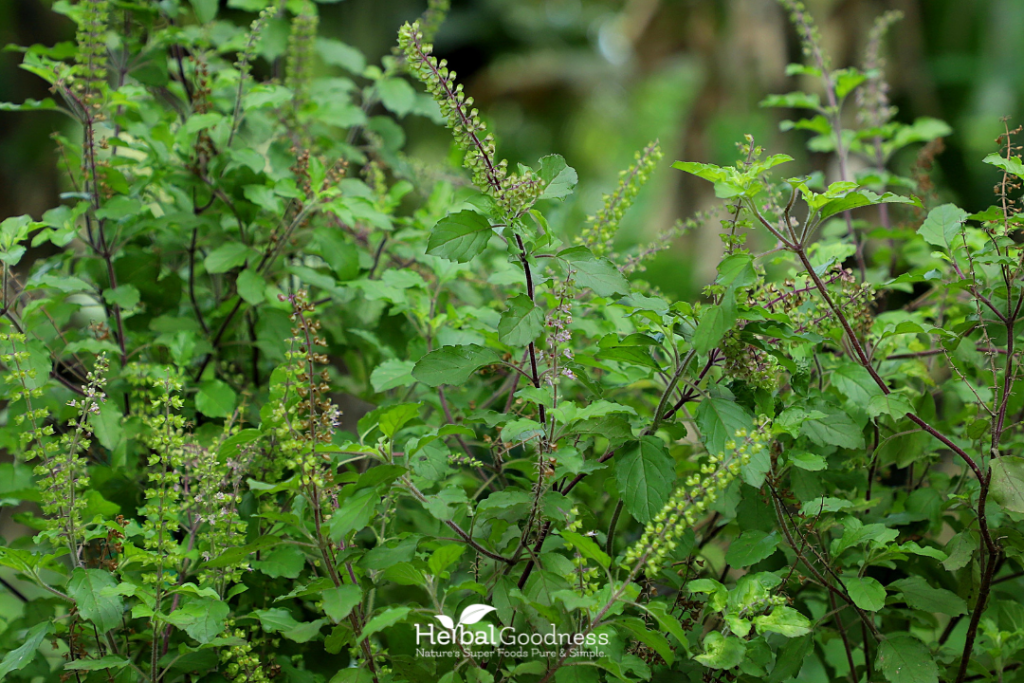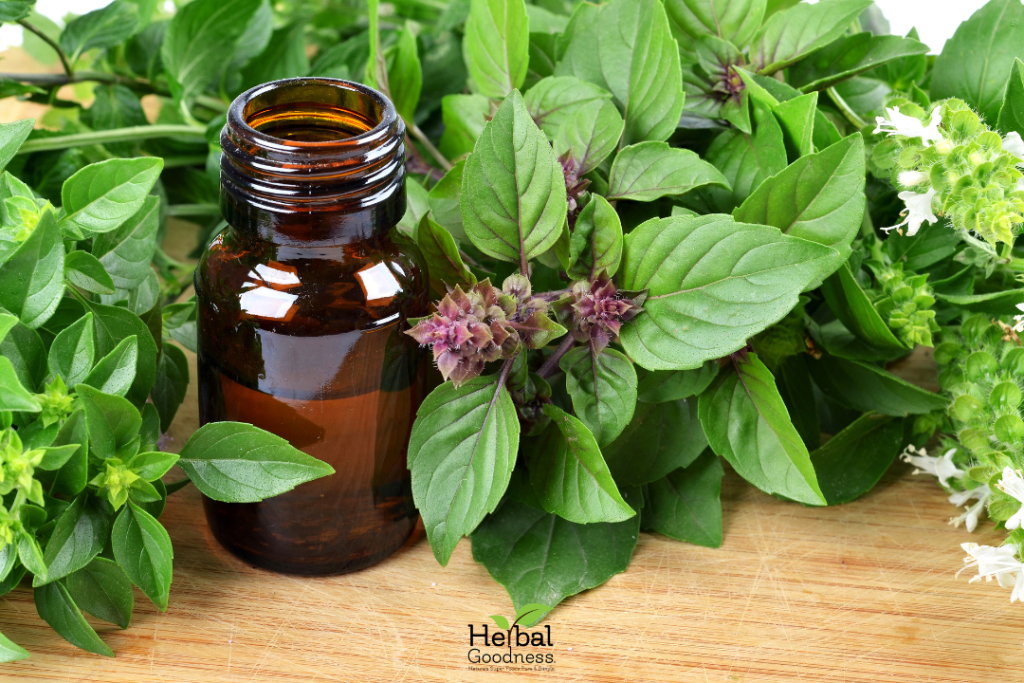
From the lush gardens of India to the cups of tea around the world, Holy Basil, also known as Tulsi, has been revered for centuries. Not only for its divine status in Hindu culture but also for its extensive medicinal properties. This aromatic herb, belongs to the mint family Lamiaceae. It is a cornerstone in Ayurvedic medicine and is celebrated for its ability to alleviate stress and support overall well-being.
What is the Origin of Holy Basil?
Known scientifically as Ocimum tenuiflorum, Holy Basil thrives natively in the Indian subcontinent and flourishes across Southeast Asia. Cultures deeply value it, particularly the Vaishnavite sect of Hinduism, which deems it sacred. Ayurvedic medicine enjoys its wellness history spanning thousands of years.
It has a distinctive flavor profile that is often described as peppery with hints of clove, lemon, and mint. The taste is pungent and warming, making it a unique addition to many Southeast Asian and Indian dishes.
The Healing Power of Holy Basil
Holy Basil, considered an adaptogen, actively helps the body adapt to stress and fosters mental balance. The herb’s healing power stems from its diverse pharmacological properties, which encompass:

- Stress Reduction: research has shown that holy basil can act on the body’s stress response system. Studies have shown it can lead to reduced stress levels in both humans and animals.
- Antioxidant Properties: It contains compounds like eugenol, ursolic acid, and beta-caryophyllene. They possess antioxidant effects, protecting the body from damage caused by free radicals.
- Anti-inflammatory Effects: Holy Basil can help reduce inflammation, which is at the root of many chronic diseases.
- Brain Health Support: Holy Basil actively benefits brain health, potentially boosting cognitive functions.
- Metabolic Health: Some studies suggest that Holy Basil can positively affect metabolic syndrome and diabetes, helping to regulate blood sugar and lipid profiles.
- Immune Support: The herb has antibacterial, antiviral, antifungal, and analgesic properties, which can support the immune system and help fight infections.
It is also used for a variety of other health conditions, including skin conditions, and digestive issues, and to promote lung, liver, eye, kidney, bone, thyroid, and respiratory health.
It’s important to note that while Basil is generally recognized as safe, it’s always best to consult with a healthcare professional before starting any new supplement, especially if you are taking other medications or have underlying health conditions.
Incorporating Holy Basil into Daily Life
Incorporating Holy Basil into your daily routine can be both simple and versatile. Here are some ways to enjoy the benefits of this herb:
- Tea: Start or end your day with a cup of Basil tea. Steep dried leaves in hot water for about 5–10 minutes, strain, and enjoy.
- Culinary Uses: Add fresh Basil leaves to salads, soups, and stir-fries to give your meals a nutritional and flavorful boost.
- Tincture: A tincture is a concentrated liquid form of Holy Basil. You can take it as recommended on the product label, usually by adding a few drops to water or other beverages.
- Capsules: For those who prefer convenience, Holy Basil is available in capsule form. Follow the dosage instructions on the product label.
Remember to consult with a healthcare professional before adding any new supplements to your routine, especially if you have underlying health conditions or are taking medications. Incorporating Holy Basil can be a refreshing and healthful addition to your daily wellness practices.
Understanding the Side Effects
Although generally safe, you should stay informed about any potential side effects. Some individuals may experience nausea or diarrhea, and it may interact with certain medications, such as blood thinners or drugs for diabetes. Pregnant and breastfeeding women should avoid Basil due to the lack of sufficient safety information for these periods.
Conclusion
Holy Basil stands out as a natural remedy with a multitude of benefits, particularly its stress-relieving properties. Whether consumed as a tea or incorporated into meals, it offers a simple yet powerful way to enhance one’s health and well-being. As with any herb, it’s crucial to use it mindfully and with the guidance of a healthcare professional, especially when considering its use alongside medications or during pregnancy.


